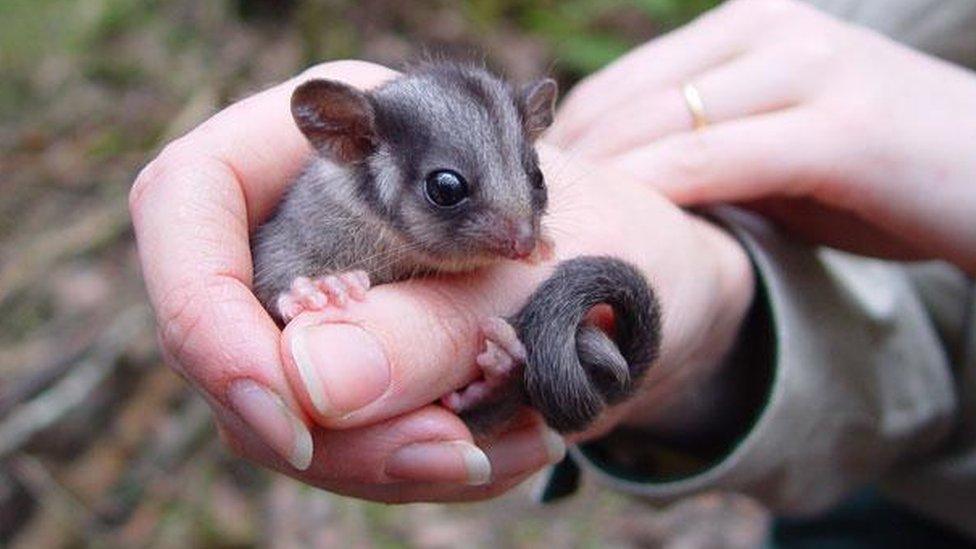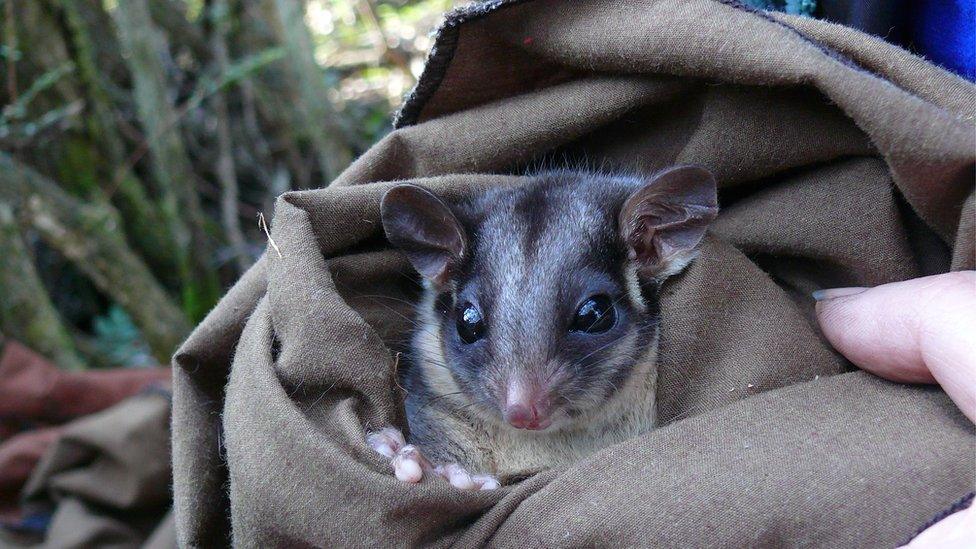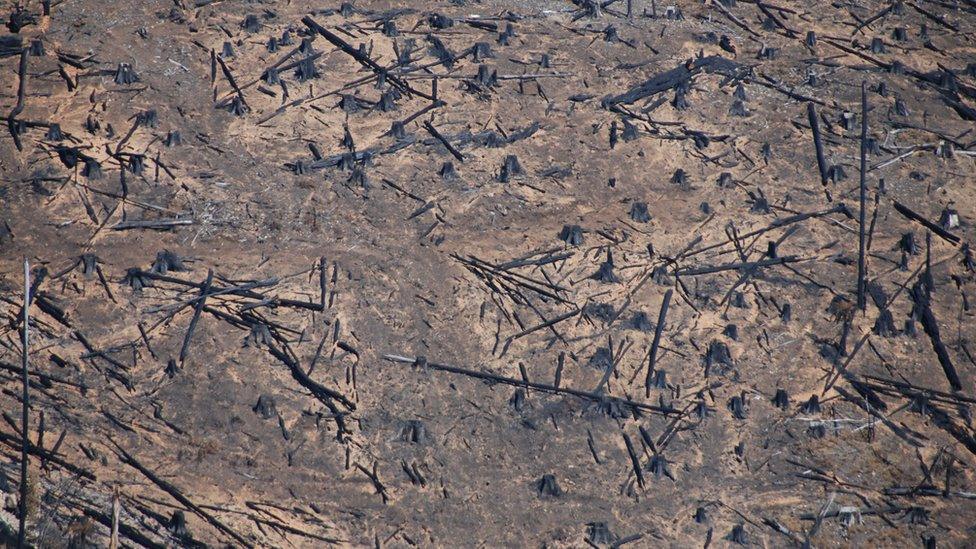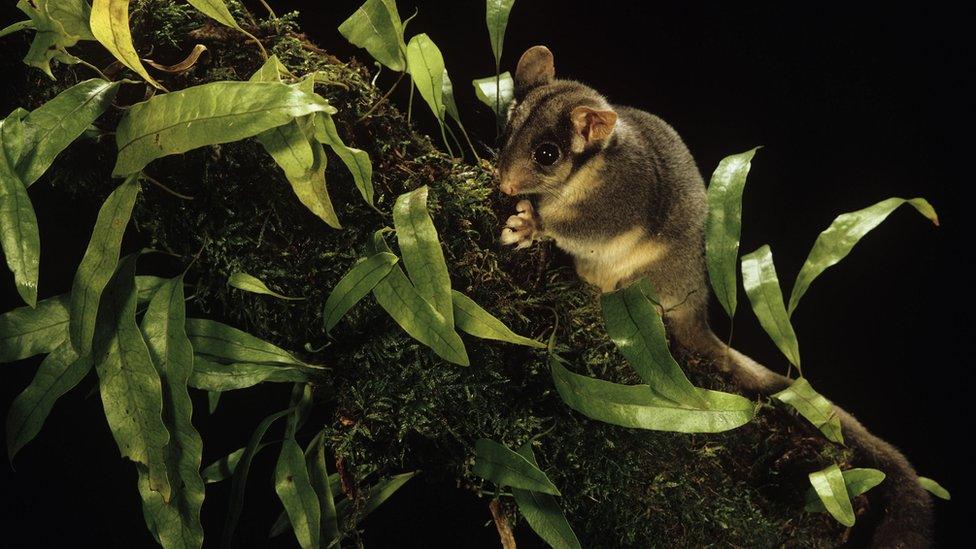Australia's 'fairy possum' faces uncertain future
- Published

Logging, fire and climate change all pose threats to Leadbeater's Possum
A tiny possum, the faunal emblem of the state of Victoria in Australia, is rapidly heading towards extinction, say scientists.
Researchers say the creature, nicknamed the fairy possum, is suffering under a combination of logging, fires and climate change.
In a study, the authors argue that new reserves are needed and priority must be given to the Leadbeater's Possum.
The research has been published, external in the journal Plos One.
There are estimated to be just 2,000 of the tiny Leadbeater's Possums left in the Central Highland forests of the state of Victoria - the only area where they are found.
The animals, "about the size of a tub of margarine", spend most of their lives living and nesting in hollowed out trees that are up to 200 years old.

The "fairy possum" faces extinction say researchers if greater efforts aren't made to preserve its habitat
"When fires burn in an old growth forest, it produces these big dead trees that the animal likes to nest in," said Prof David Lindenmayer from the Australian National University, and one of the authors of the new study.
"But fires in a young forest don't produce that pulse of old dead trees - the big problem now is that less that 1.1% of the entire forest estate is dominated by these big old trees and it used to be up to 60%."
Major fires in Victoria in 2009 eliminated large numbers of the animals and their habitat.
The complex interplay of fire, rising temperatures and industrial timber felling may see the end of the "fairy possum" as it's sometimes called, within 20 years.
"In the past logging took out the big trees and created young forests, but to our horror we've discovered in the last few years that forests that regenerate after logging are significantly more likely to burn at much higher severity," said Prof Lindenmayer.

Logging removes old forests and the younger trees that replace them are more severely impacted by fire
"So logging and fire are not independent - and climate change and fire are not independent either, with increasing temperatures, reduced rainfall, increased lightning and wind, we're seeing more fire in this system."
In their new study, the authors argue that new reserves are needed and that priority must be given to the Leadbeater's Possum.

The tiny creature can only be found in the forests of the Central Highlands in the state of Victoria
To ensure the best survival chances of all creatures in the region, would require a fundamental change, says Prof Lindenmayer.
"The price really is to move the logging industry into plantations and out of native forests," he told BBC News.
"These animals have survived for 20 million years without logging but over the past 50 years they have become critically endangered because of human interference with this ecosystem."
"If we want to conserve all of these different animals we need to take logging out of the system."
Prof Lindenmayer is at a loss to explain just how the species acquired its nickname.
"I never call it the fairy possum, I always call it Leadbeater's Possum, when you handle them they've got some real spunk, they'll bite and scratch that's their way of fighting off predators, so it is anything but fairy like!"
Follow Matt on Twitter, external and on Facebook, external